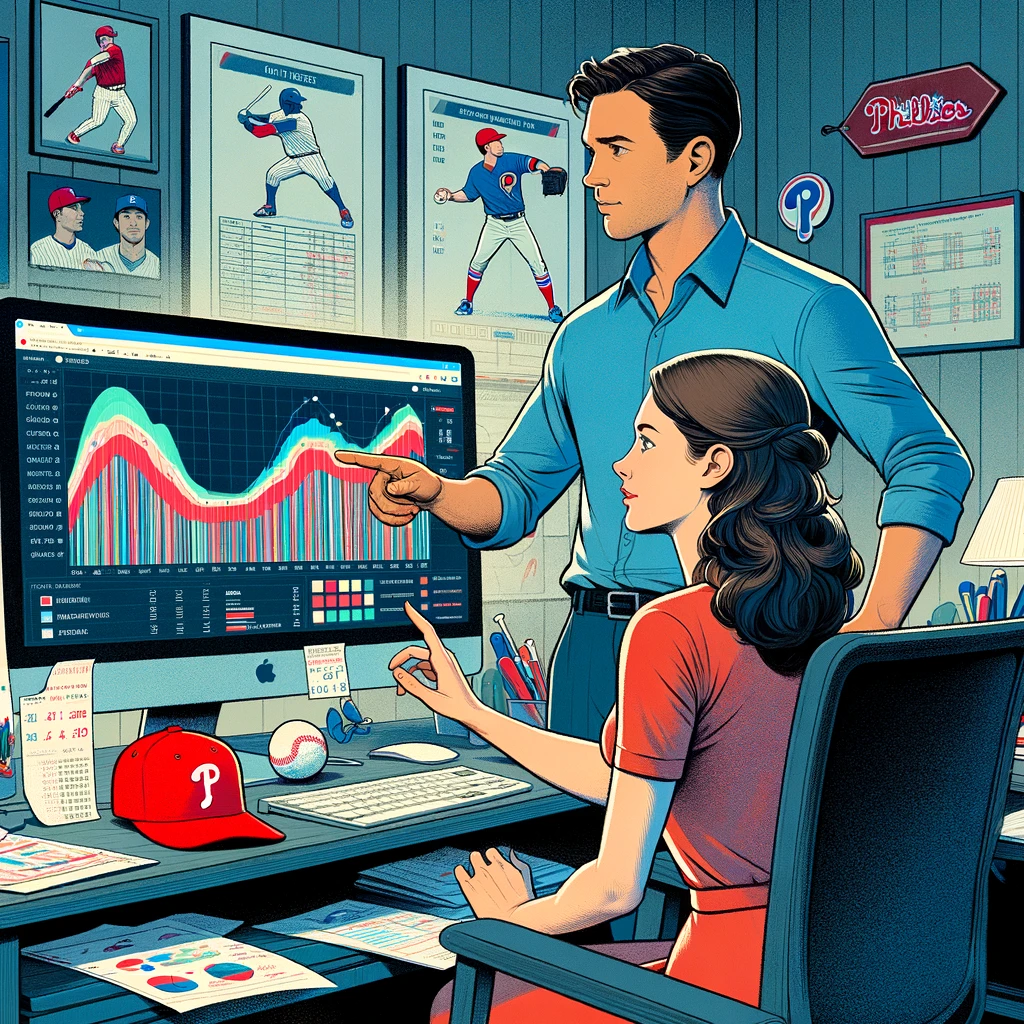As I continue to work to maintain “good” habits and break “bad” ones I’m learning that I need to get more and more comfortable with the idea of being bored. By leaning into my mental and physical state, whenever I’m given the opportunity to choose what to focus my attention on, I ensure I get the most out of that focused attention. Balancing productivity with relaxation is a challenge we all face. In this post, I’ll explore how I’ve been refining my daily habits, embracing flexibility in my schedule, and using downtime effectively. I’ll also share updates on my recent Python projects, providing a glimpse into both my personal and technical growth journeys.
Making Habits Easy
Working out and reading have been by far the easiest habits to maintain. I’m an early riser so I find getting a workout in during the morning before Dana rises usually works best. If I’m feeling a bit lazy I’ll put it off until after work. I’ve also found that blocking out a time to walk Walter in the afternoon has helped break from the morning meeting onslaught and step away from the computer. These walks are productive and involve either thinking about a problem I’m working through or listening to a personal development audio book.
Reading, the right material (and this point is very important), before bed time gets me ready to sleep. The book I had planned to read in April was “The Millionaire Next Door“. I learned within the first few pages that this was NOT a night time read. Thinking about my finances right before bed lead to some restless nights. I decided to pivot and break my previous “rule” of only one book at a time. I now have a night time book, “Wherever You Go There You Are“, and a daytime book, The Millionaire Next Door. Carving out time during the day to read has been difficult but I’ve found taking advantage of in between times like lunch has been productive.

Choosing Your Focus
One thing that I’ve tried to really internalize as I’ve worked to establish these habits is that the timing doesn’t matter as much as keeping up with the activity. Many of the books I’ve read or listened to on the subject of productivity have always talked to maintaining a regular schedule to increase productivity. I agree with this hypothesis but I think it is important to recognize that the schedule IS NOT more important than the activity itself.
When I wake up feeling sore or unenergized I decide to push off working out until lunch or after work. When my day at work kick’s my ass I don’t have the capacity for a personal development book I focus on my blog or reading a “lighter” book. Being flexible and listening to the signals your body is sending to you is more important than just gritting your teeth and pushing through.
What enables this sort of productive flexibility is spending time and regularly revisiting what life goals are. In doing this, I mentally build a priority list of the things that are important to me. Then, when I have the opportunity to choose what I do I can pick something that not only aligns with my goals but also aligns with my mental state. For example, if I decide that I want to improve my mindfulness and physical fitness then when I have free time I can take note of my mental state and decide wether I’m more likely to be productive working out or meditating.
Finding Time to Relax
This has been the biggest struggle for me and I think it is because my pendulum swings all in or all out. I have trouble finding and maintaining that in between. The fact of the matter is that you don’t ALWAYS have to be doing something that mentally taxing to make progress. When I’m feeling overworked or stressed and finding it difficult to focus I play video games. Objectively, playing video games doesn’t help me progress toward any of my goals but it is something that I enjoy. For this reason, I try to time box any video gaming session. I also try to make it a reward for doing something productive. For example, if I feel the urge to play video games I may decide “I’ll play an hour of video games after working out.”

Identifying Less Productive Behaviors
Another thing that I’ve been trying to focus on are the things that I do that I may want in the moment but that I know don’t 100% align with the vision I have for my life. I accept these behaviors as something that I want to minimize but I don’t necessarily try to eliminate them entirely (see my video game example above). I have to give myself time to be distracted; to watch TV, to browse the internet, go fishing, or play video games but I also need to make sure these activities don’t take over my life. By inventorying tendencies that I have which I consider to be less productive I can be vigilant in monitoring the time I spend on them.
I don’t believe this to be revolutionary; in fact, I think I may have seen it on an insta reel suggesting different productivity schedules. But I have found the application of it to be important in progressing toward my goals. Setting the overarching goal of being “productive” and recognizing what I consider to be less productive has helped me shift what I’m working on as needed to align with my mental and physical state.
While personal development occupies much of my focus, I also channel my energy into technical projects that refine my coding skills and satisfy my intellectual curiosity.
Python Updates
Transitioning from personal development to technical pursuits, I recently faced challenges with my Python project ‘Beat the Bookmaker.’ Despite the hurdles in API integration and database management, the project sharpened my coding skills. Here’s a deeper look into the problems I encountered and how they’ve set the stage for my current project—a Phillies Dashboard.
I had trouble getting the python script to correctly calculate the odds and update the database. I learned a lot along the way about the use of APIs, conducting data analysis via python, and updating amazon database. I THINK it is an issue with the timing/storage of the information pull from the API and the information pull from the database. It was a fun project and I may pick it back up someday but for now I’m putting it on the back burner.
My father inspired me to build out a Phillies Dashboard which has been my focus as of late. The dashboard leverages a similar tech stack as the beat the book maker project. One enhancement from the previous project is I have it updating one of my WordPress pages. The current challenge I’m working through is getting the damn thing to run on a scheduled basis which you think would be easy. I’m confident I’m missing something and likely just need to spend an hour or two of focused time to get it running nightly.
The Phillies Dashboard script automates the process of updating a sports dashboard for the Philadelphia Phillies’ performance by interacting with a live MLB statistics API and a MySQL database. It fetches the current game schedule from the database and checks for updates from the API. If updates are found, it processes and stores the updated scores, game results, and detailed player statistics back into the database. The script then performs an analysis of the Phillies’ performance, calculating total wins, losses, and other metrics. Finally, it updates a WordPress site with the latest performance statistics. Getting it to run at scheduled intervals is the last requirement I’ll be exploring as part of the current “phase” of the project. Future enhancements I’ve been considering for the dashboard include adding a drop down for users to select a pitcher and get the same win/loss calculations based on the pitcher, calculating and presenting the estimated total number of wins at their current record, and improving the overall UX.

As we navigate the complexities of productivity and leisure, the key is finding balance. Whether it’s refining habits or tackling new technical challenges, each step forward is part of our unique journey.

Leave a Reply
You must be logged in to post a comment.